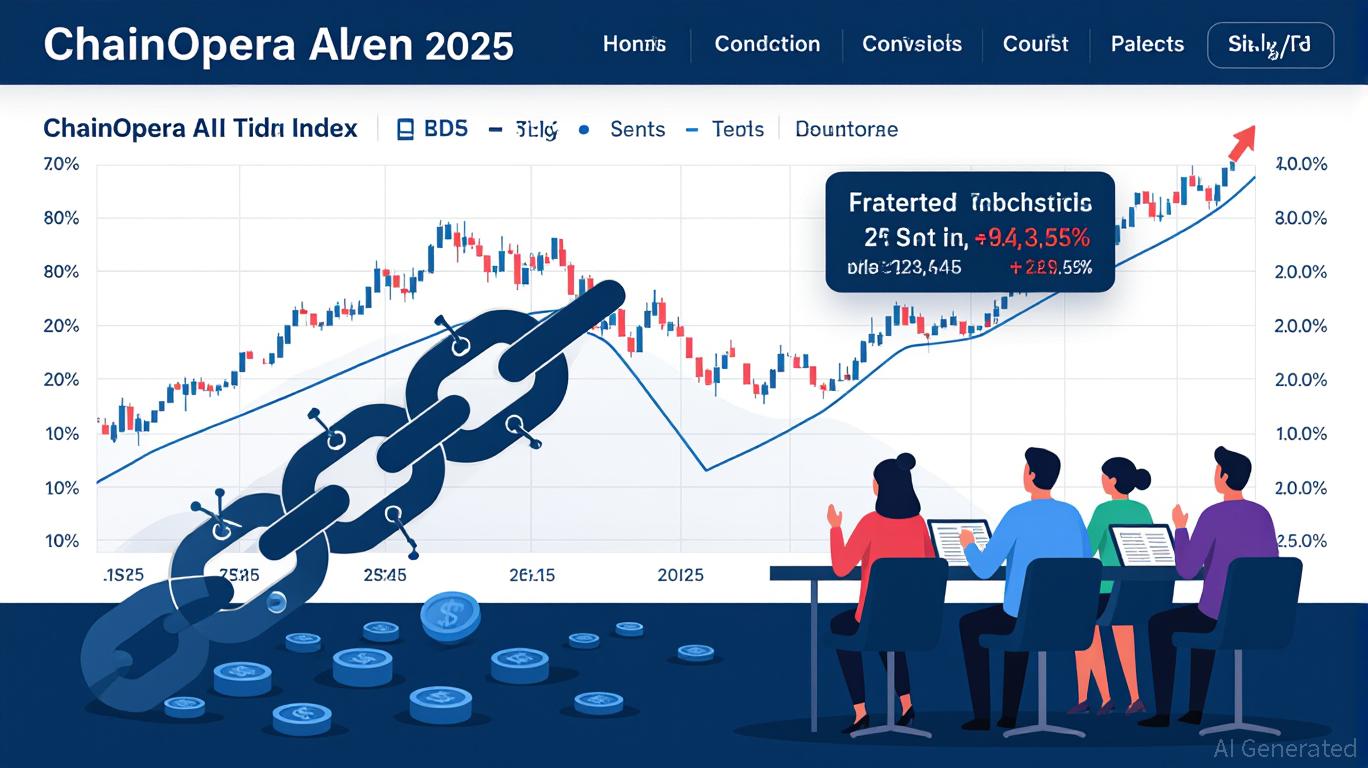XRP News Today: Memes and Markets Collide as First U.S. MOG ETF Application Fuels Speculation and Discussion
- Canary Capital filed first U.S. spot ETF for Mog Coin (MOG), a meme-based token, expanding crypto ETF options. - MOG's price rose 5.5% temporarily despite trading at fractions of a cent and an 80% annual decline. - The SEC's new generic ETF standards enabled niche token filings, with Canary's XRP ETF set for Nasdaq listing. - Critics warn memecoin ETFs prioritize speculation over utility, but $575M in altcoin ETF inflows show growing demand. - MOG ETF's 5% ETH allocation and cultural branding risks highl
Canary Capital has submitted an application for the inaugural U.S. spot exchange-traded fund (ETF) that tracks Mog Coin (MOG), a relatively obscure
The application highlights a growing pattern of asset managers submitting speculative crypto ETF requests to the U.S. Securities and Exchange Commission (SEC), especially for tokens whose primary value lies in cultural branding rather than blockchain utility, according to Cointelegraph.

Although MOG’s price increase was limited, it demonstrates the growing impact of ETFs on lesser-known cryptocurrencies. Following the news, the token’s market cap briefly reached $169.5 million, up from $140 million earlier that day, as reported by Cointelegraph. However, Canary’s prospectus cautions that MOG’s worth is mainly tied to its meme status and community-driven image, with no assurance that its popularity will last, as Cointelegraph notes. The ETF also plans to allocate up to 5% of its holdings to
The launch of the MOG ETF comes amid rising interest in altcoin ETFs. Bitwise and Grayscale’s
While some critics claim that memecoin ETFs are driven by speculative hype rather than lasting value, Canary’s approach reflects a demand among investors for access to trending digital assets. The SEC’s renewed review of crypto ETF applications, following the passage of a funding bill in the House, could speed up the approval process for these products, according to Cointelegraph. With the first MOG ETF possibly launching soon, this development marks a new stage in the evolution of the crypto market, where viral internet culture and institutional finance are becoming increasingly interconnected, as described in the Crypto.News article.
Disclaimer: The content of this article solely reflects the author's opinion and does not represent the platform in any capacity. This article is not intended to serve as a reference for making investment decisions.
You may also like
H-1B Enforcement at Odds with Trump’s Stated Reliance on Overseas Labor
- Trump's administration launched 175 H-1B visa investigations targeting wage fraud and fake work sites to "protect American jobs." - The crackdown contradicts Trump's admission that U.S. industries face critical skills gaps requiring foreign labor in tech and manufacturing. - A South Korean EV battery plant worker raid and corporate critiques highlight tensions between immigration enforcement and labor shortages. - Proposed $2,000 tariff dividends risk inflation while H-1B restrictions test the viability

U.S. Debt Fluctuations Surge Amid AI-Driven Borrowing Growth and Fed Faces Fiscal Uncertainty
- U.S. Debt Volatility Index hits one-month high in November, reflecting market anxiety amid government shutdown resolution and fiscal risks. - AI infrastructure debt surges 112% to $25B in 2025, driven by tech giants’ $75B in bonds for GPU/cloud projects, raising overleveraging concerns. - Fed faces mixed signals: October job losses push December rate cut odds to 68%, while gold/silver rise 2-3% as investors seek safe havens amid fiscal/geopolitical risks. - Delayed economic data from shutdown complicates

ChainOpera AI Token Plunge: An Alert for Investors in AI-Based Cryptocurrencies
- ChainOpera AI Index's 54% 2025 collapse exposed systemic risks in AI-driven crypto assets, driven by governance failures, regulatory ambiguity, and technical vulnerabilities. - C3.ai's leadership turmoil and $116.8M loss triggered sell-offs, while the CLARITY Act's vague jurisdictional framework created legal gray areas for AI-based crypto projects. - Model Context Protocol vulnerabilities surged 270% in Q3 2025, highlighting inadequate governance models as 49% of high-severity AI risks remain undetected

Navigating the Dangers of New Cryptocurrency Tokens: Insights Gained from the COAI Token Fraud
- COAI token's 2025 collapse exposed systemic risks in algorithmic stablecoins, centralized governance, and fragmented regulatory frameworks. - xUSD/deUSD stablecoins lost dollar peg during liquidity crisis, while 87.9% token concentration enabled panic selling and manipulation. - Regulatory gaps pre-collapse allowed COAI to exploit loosely regulated markets, but post-crisis reforms like MiCA and GENIUS Act now demand stricter compliance. - Investor sentiment shifted toward transparency, with demand for re
